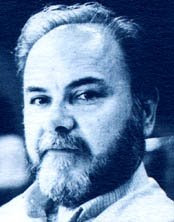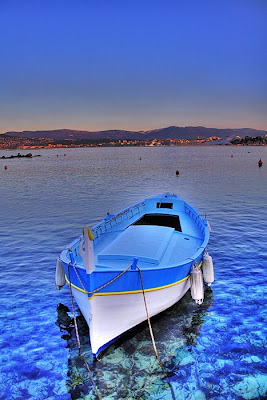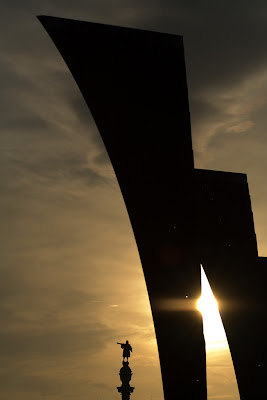
Another cloudy Sunday, with Greece already eliminated from the Euro and me instead of following my boss' advice ("work, work and then work some more"), am reading the Sunday papers in four different languages.
On the news since last Friday, the decision taken by the Irish government to refuse to ratify the Treaty of Lisbon (a slightly "made-up" version of the EU Constitutional Treaty), after the negative vote of the Irish people. It is somehow striking how this treaty (or its predecessor) fails to be ratified by any state which decides to leave it up to its people through a process of vote. It happened in France and the Netherlands back in 2005, it happened again in Ireland. On the other hand, the Treaty has been approved by most of the EU members, which chose to ratify it through the vote of the parliament, bypassing direct voting. However, -and somehow misleadingly- the press throughout this frustrated continent puts the blame on the Irish. For what? For simply letting the people decide.
On this "hot" subject, today on the news, I read "funny" articles (use of the term "funny" in order to avoid other, bitterer ones). Articles like
this one in Greece's Kathimerini, or
this in Spain's El Pais. Articles which suspiciously focus on an "interesting" (I hope you bear with me with these quoted terms) concept of "minorities" deciding over the majorities. It sounds pretty reasonable the way I summarized it (and carefully placed it carefully in between quotation marks) but is it? Is it really? What Europe's most distinguished columnists call a minority is the small margin of more or less 110.000 votes with which the Irish voted in favour of not ratifying the treaty. These 110.000 votes -they claim- stand between the fulfillment of the will of 500 million Europeans. This immense majority, which -always according to them- has been holding its breath with utter anxiety until the Lisbon Treaty is finally put forward.
I know most of the people don't care reading the papers that much, perhaps because the sun is brighter in Greece or in other parts of Spain or even in Poland and they prefer a Sunday afternoon walk instead of bothering to read this kind of crap (there you have it, no quotation marks any longer). But what these people are implying by talking about "minorities" is that we should no longer leave decisions like these to the people. Everyday people -they say- lack information, they vote on the grounds of personal discontent, they are too ignorant to realize what is good for them, too distracted by the fear of economic depression to reason the true advantages that this treaty will offer them. Instead we should be taking these decisions more "democratically". Through parliamentary vote, with less room for fuss on indymedia, preferentially on an evening session, if possible on a football night. You see, our representatives know more. After all it was us who voted for them so why shouldn't we trust them? I mean honestly, would you prefer that the future of our continent be decided by your poor grandmother or by your well esteemed "congressmen"?
We are entering dangerous ground here. I know democracy is supposed to be the "lesser bad" of our alternatives but once we chose it we might as well stick with it. My "representatives" will not be here in four years to explain what has been going wrong with Europe. The ones who chose to switch to the Euro six years ago (the period with the greatest increase in prices Greece has experienced since WW2) are all well off, pretending nothing happened. Morevoer, I have to admit I had little idea that the Treaty has been ratified already by the parliaments of 17 states. Could this be because I am not being "informed" enough so that I can have an opinion about my constitution? Or is it perhaps that it was something so insignificant our leaders -AND leading columnists- did not want to bore us with? How come such a big discussion, exchange of arguments (even as lame as the aforementioned ones) is being raised now, after the Irish "NO"? Isn't this a sign that democracy is still breathing, and that the debate starts when somebody has a different opinion?
The defenders of the "majorities" should have no fear. Now that the people are suddenly interested in the Treaty, they can try to "inform" them better. If they think they don't evaluate the Treaty's text on solid grounds, they can explain all the "benefits" that come with it. After all it is their job. I mean, the Irish "fools" screwed up with Europe's dream but there is still hope for the rest, isn't there? Please Sr. Carnero, Mr. Konstantaras, could you explain to me and my poor grandmother what is really the best for us instead of putting the blame on the Irish?
I promise to be very careful while listening to your solid arguments. But as regrading who should finally decide about my Constitution, I beg to differ and for once more I 'll choose to be the "radical" one, the "undemocratic", the "minority" supporter. And yes, if you ask me, I prefer my grandmother decides what's best for her. After all, if something goes wrong, she 'll need no one to be blame but herself.






























